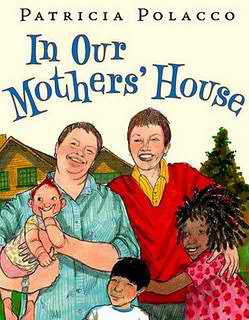
 If you celebrate and practice your basic human right to free expression, you just might want to avoid Davis County in Utah.
If you celebrate and practice your basic human right to free expression, you just might want to avoid Davis County in Utah.
The small county, made up of about 15 cities, has a population of about 285,000 and the dubious distinction of engaging in book banning throughout the years.
In 1978, Jeanne Layton, director of the Davis County Library in Bountiful, lost her job for refusing to remove Don DeLillo’s Americana from library shelves.
In 1991, on the 200th anniversary of the ratification of the Bill of Rights, observances such as Banned Book Week served as a reminder that the American people have the right to free speech, free expression, and a free press. Instead of encouraging the practice of those rights, Davis County did the exact opposite when some parents complained to the Davis County School Board because John Gardner’s Grendel was required reading in the English curriculum at Viewmont High School. The book was permanently banned from further use in the district.
But that was the 20th century. Surely the residents of Davis County have left such incidents within the pages of history, right? Sadly, censorship and social intolerance are alive and well as the flames of ignorance rage on into the next millennium.
The Davis County School District, which covers an area north of Salt Lake City, is targeting books that portray families of same-sex parents. In Our Mothers’ House and Totally Joe, a book with the message that bullying of homosexual teenagers is wrong by providing a glimpse into the suffering of gay teens, who all too often take their own lives.
In Our Mothers’ House, published in 2009 by Patricia Polacco, was chosen by librarians specifically because there are children in the district with same-sex parents. The book features a lesbian couple teaching their multi-racial family to use love to give them the strength to overcome intolerance. Librarians wanted to make the school’s children feel included and also wanted to help other children understand that various types of families are all acceptable.
Chris Williams, a spokesman for the Davis School District, said the book was added to the collections at five of the district’s 50 elementary schools in June, 2010, in an “effort to be inclusive after administrators learned that a student was being raised by two mothers.”
That is an honorable and just thing to do; but not for one parent.
The parent raised her objections to the school in when her child checked In Our Mothers’ House out of the library and brought it home in January, 2011.
A school-level committee made up of teachers, administrators, and parents ruled that access to In Our Mothers’ House would be restricted to students in grades 3 through 6. When that didn’t satisfy the parent, a district committee was petitioned to address the issue.
In April, the district committee voted 6-1 that the book could stay in the collection, but should be kept behind the counter, instead of on shelves. A letter informing parents of the decision was sent out in May.
But now the district is on a witch hunt, asking district librarians to report other books with gay or lesbian characters.
DaNae Leu, a Davis media specialist, may well be the next to suffer the fate of Jeanne Layton. She says her goal is “to provide literature for my students that encompasses the whole scope of humanity.” She argues that, while parents should be able to steer their own children toward or away from a particular book, they “shouldn’t expect to make that choice for other people’s children.”
Exactly the point. Again, while it is every parents’ right to raise their children as they wish, they do not have the authority to use that right to suppress another parent from doing the same. The book is not legally defined as offensive or profane, so a personal grudge based on personal ideology should not trump the legal rights of others as guaranteed by federal law.
This isn’t the first time the book has faced fire, though, according to a 2011 report by the American Civil Liberties Union of Texas. The book has been banned by several schools in that state.
For more information on the Banned Books Awareness and Reading for Knowledge project and the complete list of titles covered, please visit the official website at http://www.deepforestproductions.com/BBARK.html
Sources: Wikipedia, Amazon, American Library Association, The Salt Lake Tribune, Comic Book Legal Defense Fund, Huffington Post, American Civil Liberties Union
© 2012 R. Wolf Baldassarro/Deep Forest Productions

Leave a Reply